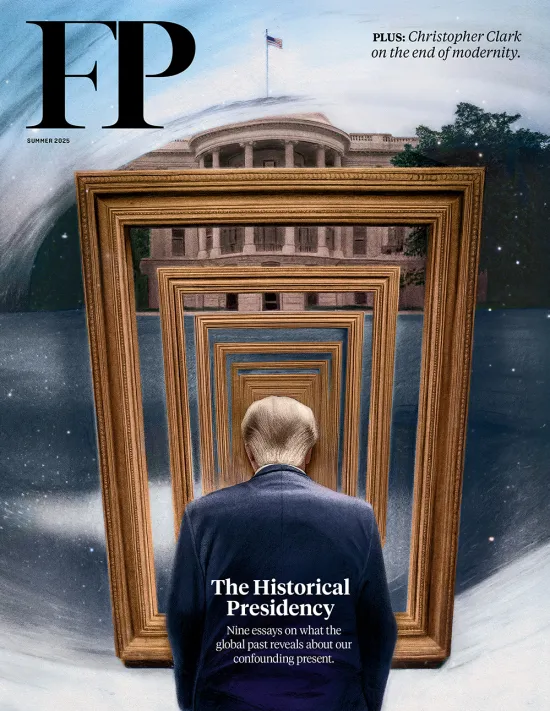
作者/Author(s): Henrietta Levin
網站來源/Source: Foreign Policy
日期/Date: 07/16/2025
關鍵字/Keywords: 經濟、貿易、美國、越南、美越關係
摘要:
過去三十年來,美越關係逐漸深化,拜登政府甚至將河內視為全面戰略夥伴。然而,川普提出對越南徵收高達46%的關稅與不合理的談判條件,可能危及雙方過去三十年的外交成果。越南似乎選擇「忍痛吞下」這些條件,以維持兩國間的友好關係,同時降低過度依賴單一強權的風險。然而,目前尚不清楚川普能從他的行動中獲得什麼利益,甚至可能反噬美國的戰略利益。
- 越南與鄰國及大國均有歷史爭端,但卻展現出高度靈活的外交手段。越南雖對昔日敵對國家保持警惕,卻也願意與所有國家合作,以確保自身的繁榮與安全。
- 在美中戰略競爭加劇之際,越南成功維持與兩強的外交平衡。
- 越南與美國合作以對抗中國在南海的擴張行為,並配合美方對其經濟改革的多項要求;同時,越南也強化與中共的關係,以鞏固自身政權安全。
- 在越南領導人熱烈歡迎拜登訪問河內後不久,他們也接待了習近平與普丁,迅速回復外交平衡,避免引起政治反彈。
- 雖然越南對中國的戰略意圖抱有疑慮,但仍表態支持習近平提出的「全球安全倡議」(Global Security Initiative),並與美國升級雙邊關係,展現在強權間尋求平衡的務實策略。
- 越南靈活的外交佈局凸顯其在必要時願意接受較差的條件,以維持對外均衡。
- 雖然美越雙方已達成新的貿易協議,但仍有許多細節待定,尤其關稅條款對越南而言並不友善。然而,該協議或可作為越南爭取美國頂尖技術與進入美國市場的籌碼,進一步鞏固雙邊戰略夥伴關係。
- 新關稅措施恐將傷害越南與美國經濟,並增加雙方對中國的依賴。美方聲稱許多越南產品含有來自中國的零件,因此對越南產品課徵40%的「轉運稅」。目前尚不清楚華府將如何界定與實施轉運稅,但是轉運稅稅率低於美國對中國平均關稅,這可能導致美國製造商將產線從越南遷回中國,進一步暴露美國供應鏈的脆弱性。此外,越南既然接受了美國的不公平條款,必然也需要對中國做出某些外交讓步,以重新平衡雙邊關係。
- 越南也許能藉由美越協議維持進入美國市場的機會,以及與川普的良好互動。但美國卻錯失深化美越戰略夥伴關係的契機,更因對弱國施壓而損害自身的全球領導地位。
Summary:
The U.S.-Vietnam relations have gradually deepened over the past three decades. The Biden administration even views Hanoi as a comprehensive strategic partner. However, Trump's impulse to impose a 46% tariff on Vietnam and unreasonable tariff negotiation terms could jeopardize the 30-year relationship. Vietnam appears to swallow the bitter pill and accept the terms, thereby preserving good U.S.-Vietnam relations and mitigating the risks of over-reliance on any single power. Yet, it is unclear what benefits Trump could reap from his actions. Worse, it could backfire against the U.S. strategic interests.
- Despite troubled histories with its neighbors and great powers, Vietnam navigates its diplomacy well. While being wary of past enemies, Vietnam is willing to work with any country to preserve its prosperity and security.
- Vietnam managed to strike a balance between the U.S. and China amid their strategic rivalry.
- Vietnam partnered with the U.S. to counter Chinese aggression in the South China Sea and complied with most U.S. demands for economic reform. Simultaneously, Vietnam enhanced relations with the CCP to hedge risks to its regime security.
- While Vietnamese leaders passionately welcomed Biden's visit to Hanoi, they quickly restored balance by hosting Xi Jinping and Putin, thereby preventing any diplomatic backlash.
- Despite a distrust of Beijing's intentions and ambitions, Hanoi supported Xi's Global Security Initiative while upgrading its relations with the U.S.
- Vietnam's tactful international strategy signified its willingness to compromise or strike worse agreements to preserve a balance.
- The U.S. and Vietnam had a new trade deal, but they had yet to finalize an agreement. The terms, especially regarding tariffs, are unfavorable to Vietnam. However, they provide Vietnam with some leverage to secure access to U.S. frontier technologies and markets while preserving the U.S.-Vietnam strategic partnership.
- The new tariffs may harm the Vietnamese and U.S. economies and increase their dependence on China. The U.S. justified its 40% transshipment levy by claiming many Vietnamese products had inputs or components from China. It is unclear how the U.S. will define and impose the transshipment tariff; however, the tariff is lower than the average tariff on Chinese products, which may prompt U.S. manufacturers to relocate their manufacturing base from Vietnam to China, potentially aggravating U.S. supply chain vulnerabilities. Furthermore, now that Vietnam accepted terms with the U.S., it will rebalance its diplomatic relations by offering concessions to Beijing.
- Vietnam may preserve some access to the U.S. market and its goodwill with Trump with the trade deal. On the other hand, the U.S. missed the opportunity to deepen a strategic partnership with Vietnam and undermined its global leadership by bullying other countries into a deal.
